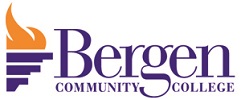Find your path to success with a diverse range of more than 120 degree, certificate, and continuing education programs.
Based on individual goals and needs, programming may include some or all of the following components:
Enhanced Support for Students
To support successful transition to post-secondary education and adult employment and to enhance social and life skills for greater independence, the Center for Adult Transition offers enhanced support (mentoring, coaching, enrichment classes, informational sessions, skills based workshops, and support connecting to community and State based resources) to eligible students enrolled in any one of the college’s programs or courses.
Academic Enrichment
Practical academics and technological skills are infused throughout our programming, with content centering on real world applications and skills relevant to young adults.
In addition, students have the opportunity to take college level coursework for the purpose of developing transferable skills in the areas of social communication, personal organization and responsibility, as well as to spark intellectual curiosity and lifelong learning.
Social Development
Educationally based workshops help students improve their understanding of social behaviors, enhance perspective taking and problem solving skills, and develop social and professional communication skills for the workplace.
Based on individualized transition goals, students have the option to develop peer connections, while exploring new or existing interests through participation in any of Bergen Community College’s Clubs, Associations, and Organizations, as well as through engagement in programs offered by the Office of Student Life.
Independent Living Skills
To promote the highest level of independence possible, participants learn independent living skills, including personal organization, time management, budgeting skills, and habits for healthy living.
As soft skills are essential employability skills in today’s competitive workplace, students receive soft skills training, with an emphasis on developing self-advocacy and communication skills, as well as problem solving and critical thinking skills.
Pre-Employment Skills and Vocational Services
Participants receive career assessments and interest inventories to assist with clarifying strengths, interests, and vocational and employment goals. To gain valuable pre-employment and employability skills, students learn career research skills, resume writing skills, and how to conduct job searches and complete the job application and interview process. Further, the Center offers seminars and workshops to develop workplace etiquette, professionalism, self-advocacy in the workplace, and skills for building positive relationships with co-workers and employers.
Career Pathway Credentialing Courses
Based on individualized goals, students have the opportunity to participate in a career pathway credentialing course and may graduate with professional industry recognized credentials through the Division of Continuing Education or other credentialing agency.
Peer Mentoring
In addition to providing internship support, peer mentors assist students with connecting to campus resources such as academic coaching, advising, and tutoring services. Mentors also support the social aspects of college transition by helping students connect to campus events, activities, and clubs.
Connection to Campus Partners
Bergen Community College is home to The Turning Point Program, an inclusive two-year postsecondary program that prepares young adults with intellectual disabilities for meaningful employment upon graduation.
Students enrolled in the Turning Point program complete vocational training and receive an inclusive college experience while building valuable skills towards independence.
Based on specific Center for Adult Transition eligibility criteria, students enrolled in Turning Point may access additional transition resources and original programming offered through the Center for Adult Transition at Bergen Community College.
